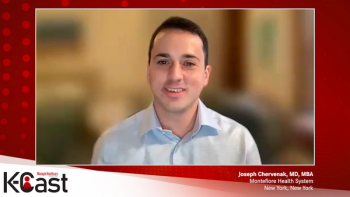
Study Finds Anxiety and Depression in Males Has No Effect on IVF Outcomes
Researchers at Brigham and Women's Hospital found no significant difference in live birth rates between men with depression and those without, regardless of antidepressant use.
In vitro fertilization (IVF) is a complex form of assisted reproductive technology that involves time-sensitive procedures and often induces stress in the couples involved. Research has shown that male anxiety has a negative effect on sperm motility and morphology and DNA health. However, there is conflicting opinion among IVF specialists on the effect of antidepressant use on IVF outcomes.
In a study published last month in
Participants answered questions from the Hospital Anxiety and Depression Scale (HADS). A score of 8 or higher on the HADS-A or HADS-D subsections of the questionnaire indicated that the participant had anxiety or depression, respectively.
According to the HADS scores, 22% of respondents had anxiety and 6.5% had depression. Results showed that men with anxiety had lower total motile sperm counts during egg retrieval versus participants without anxiety. However, the study found no significant difference in live birth rates between the group of men with anxiety and those without anxiety. There was also no significant difference in live birth rates between men with depression and those without, regardless of antidepressant use.
The authors concluded, “There is currently a debate on whether or not men should be treated with antidepressants while attempting to conceive due to potential detrimental effects on sperm quality. Our study shows that, regardless of antidepressant use, couples with men who did or did not report anxiety and/or depression have similar (live birth rates) when undergoing IVF. Therefore, it is important to assess both partners for mental health and to not withhold treatment due to a concern about a potential impact of antidepressants or anxiety (and) depression on sperm quality.”
Newsletter
Get the latest industry news, event updates, and more from Managed healthcare Executive.






















